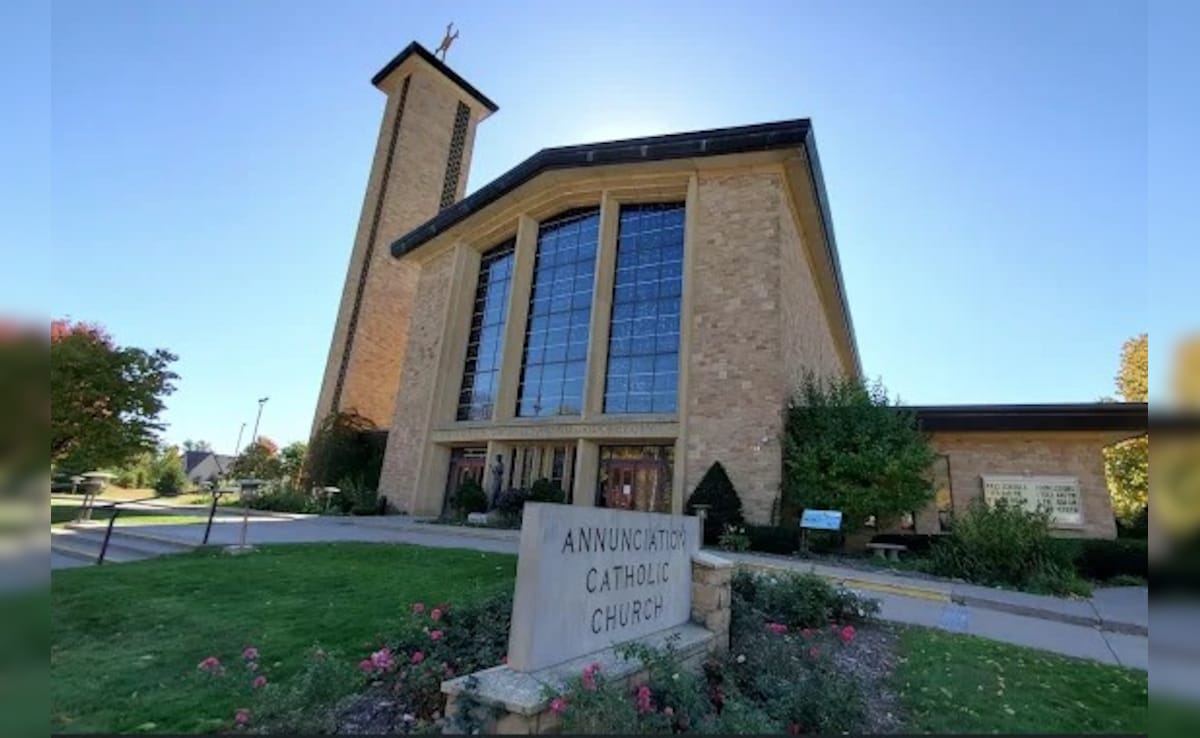But the pageant is in the spotlight for being held in Israel amid boycott calls against the country over its treatment of the Palestinians. At least one country has already called off their participation.
âEveryone with different beliefs, with different backgrounds, with different cultures, they all come together and when you are in there you forget about politics, about your religion,â Andrea Meza, the current Miss Universe, told The Associated Press ahead of a tour of Jerusalemâs Old City. âItâs just about embracing other women.â
Meza, 27, represents Mexico and was crowned in May, during a COVID-delayed ceremony in Florida, where contestants accessorized their sparkling gowns with face masks. She hands over the crown in Eilat on Dec. 12.
Hosting the show is a coup for Israel, which for years has been confronting a grassroots Palestinian-led international campaign calling for boycotts, divestment and sanctions. Israel hopes the pageant will help draw tourists and project an image of Israel as a safe destination during the pandemic.
Paula M. Shugart, president of the Miss Universe Organization, has said Israel has been on the shortlist of host countries âdue to its rich history, beautiful landscapes, myriad of cultures and appeal as a global tourist destination.â
But contestants are facing pressure to boycott the event and set aside hopes for the crown to make a political statement.
PACBI, a Palestinian activist group and founding member of the boycott movement, called on contestants to âdo no harm to our struggle for freedom, justice and equality by withdrawing from the pageant.â
Citing COVID, Malaysia has announced it wonât send a contestant. And South Africaâs government said it was withdrawing support for the countryâs representative over her participation in the event.
âThe atrocities committed by Israel against Palestinians are well documented,â the government said in a statement, adding that it âcannot in good conscience associate itself with such.â
Both countries are strong supporters of the Palestinians.
Israelâs Foreign Ministry declined to comment and requests for comment to the countryâs Tourism Ministry, which hosted Mezaâs visit to the Old City on Wednesday, were unanswered.
The boycott movementâs impact has been a mixed bag. It has notched a number of successes over the years, with major artists like Lorde and Lana Del Ray cancelling appearances because of Israelâs policies. But big stars still have made stops in Israel and major events like the Eurovision song contest - which included a performance by Madonna - have been held in the country despite high-profile boycott calls.
The Miss Universe pageant will draw contestants from Morocco and the United Arab Emirates - Arab countries that recently normalized ties with Israel.
The boycott movement, known as BDS, promotes boycotts, divestment and sanctions of Israeli institutions and businesses in what it says is a nonviolent campaign against Israeli abuses against Palestinians.
Israel says the campaign is an effort to delegitimize and even destroy the country, and claims its motives are anti-Semitic. BDS leaders deny allegations of anti-Semitism, saying their campaign is against Israeli policies.
Meza said she didnât fault women who wanted to sit out this yearâs contest but she said she had no problem with the competition being held in Israel.
Wearing a flowing, full-length dress with flat sandals, Meza meandered through the mostly empty cobblestoned alleyways of the Old City, stopping to peek into shops as a media scrum followed. Vendors, unaccustomed to seeing throngs since the onset of the pandemic, stared and wondered aloud about the attention Meza was drawing.
Meza, who is a software engineer, said she was âjust a girl,â from a small town in Mexico who was not a âperfect and flawlessâ beauty queen. She said she had worked hard to become Miss Universe and that the competition wasnât only about parading women in bikinis but also about testing their intelligence.
Asked if she could offer a solution to the conflict between Israel and the Palestinians, she said she didnât believe in violence and that communication was key.
âPeople have to make compromises and I really hope that we can make this through talking and conversation,â she said.
.png)











 English (United States) ·
English (United States) ·  Turkish (Turkey) ·
Turkish (Turkey) ·